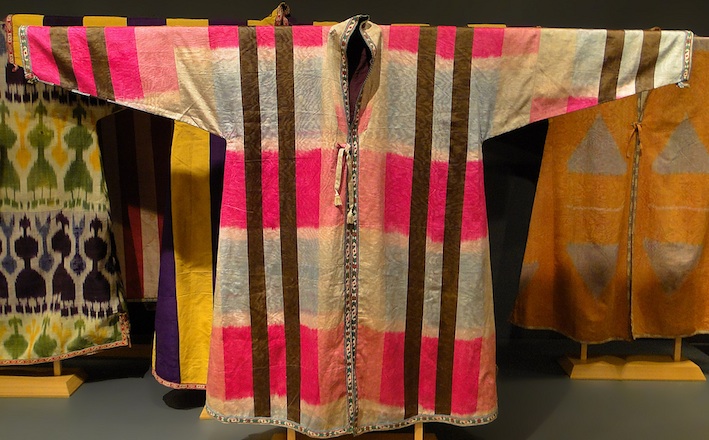Commentary on Matthew 22:1-14
Matthew’s parable about a wedding banquet gone wrong is a challenge for preaching.
We are rightly mystified by the behavior of the characters in this bizarre little story. An initial invitation to come to a feast in honor of the king’s son is met with rejection (verse 3). That’s odd (nobody turns down a royal summons), but not deeply troubling. A second invitation sweetens the deal with descriptions of the elaborate preparations (verse 4) — it’s going to be delicious! Who wouldn’t come to this party? But those invited are apparently unimpressed, and return to business as usual (verse 5). Again, this is unusual behavior — but it’s the kind of strangeness we have learned to expect in a parable.
But then things go completely off the rails. We watch in horror as the servants sent by the king to announce the party are seized, abused, and murdered (verse 6). We didn’t see that coming! How did the stakes suddenly get so high? And the weirdness and violence are just getting started. In retaliation, the king goes to war against his own people. Enraged by their actions he unleashes an army. Before we know it, the murderers themselves are murdered, and a city (presumably the king’s own city!) is a pile of smoldering ash (verse 7).
But it gets weirder still. With our heads still spinning, we learn that the dinner is still on (verse 8)! Now the invitations go out again, this time to commoners on the “main streets” of the (destroyed?) city (verse 9). Apparently, while soldiers pillaged and slashed — all the while as great flames devoured the buildings outside the palace walls — little Sterno burners toiled away silently under the sumptuous dishes in the great hall, keeping the meal hot for the eventual guests!
In other words, this is not a realistic story, and my first suggestion for preaching it is to tell it in such a way that the hearers are invited to appreciate its absurdities. No doubt this is a disturbing story — inflammatory, even. But perhaps we can get some perspective and even a little hermeneutical leverage by coming clean about the ways it strains credibility — even the special credibility we reserve for parables. With the stakes of realism lowered a bit, we can start to answer some questions.
Why is the narrative so tortured in its twists of plot? Because it is being constructed by Matthew as an allegory of salvation history. At the end of the first century, Matthew’s community finds itself in conflict with the synagogue down the street, and this story is a tool for thinking about the meaning of that conflict.
Note that this is not a matter of “Christians vs. Jews” — that kind of thinking would come later — but an intramural conflict within Judaism. Surely Matthew and his community understood themselves as faithful Jews who had responded to God’s summons to the kingdom banquet offered in honor of God’s Messiah, Jesus. But others had inexplicably rejected the great invitation, ignoring or persecuting both the prophets of old, and the new missionaries of this good news.
In Matthew’s world, a burning city would have called to mind Jerusalem’s destruction at the hands of the Romans in 70 CE, interpreted here as God’s judgment on those who rejected the new thing God was doing in Jesus. An unexpected invitation to commoners on the main streets points toward the surprising ways the invitation to God’s kingdom banquet is increasingly extended to and embraced by those once considered outsiders.
But before we decide that this is just Matthew working out some rhetorical violence against opponents, and assuring his own community that they are on the right side of salvation history, we should read the story to the end: a denouement is coming, and it’s a doozy.
With the party in full swing, the king enters the banquet hall and moves among the guests. To his dismay, he finds that one of them is not dressed properly. “Friend,” he says, “how did you get in here without a wedding robe” (verse 12)? And receiving no satisfactory answer, he has the poor guy bound and thrown out — not just outside the hall, but into “the outer darkness, where there will be weeping and gnashing of teeth” (verse 13). With “friends” like that, who needs enemies?
Again, we find credulity strained to the breaking point: of course the guy isn’t dressed properly — he was pulled in off the street at the last minute! But again, allegory, and not realism, is calling the shots here. Matthew warns his community against self-satisfaction. This king is no pushover, and if the new guests are beneficiaries of an unexpectedly generous invitation, they must nevertheless be on guard against the complacency shown by the first invitees. The doors of the kingdom community are thrown wide open, and the invitation extends literally to all. But once you come in, there are standards. You can’t go on acting like you are not at an extraordinary party.
But even if appropriate clothing is a metaphor for the need for appropriate behavior in the new, inclusive community, the parable may be saying more here than anybody expected — and the surplus will preach. Maybe Matthew originally intended this as a stern warning to live up to the rigorous standards of a higher righteousness (5:20, 48), but the story, pushed down and contorted by allegorical demands for too long, rises at the last to assert its own delightful possibility.
Within the world of the story as told, the problem with this guy is not that he is not taking things seriously enough. No, his problem is a failure to party. The kingdom of heaven (verse 2) is a banquet, after all, and you’ve got to put on your party dress and get with the program. The kingdom music is playing, and it’s time to get up on the dance floor. Or, as the slightly more sober, but no less theologically astute Barth put the matter: “In the last resort, it all boils down to the fact that the invitation is to a feast, and that he who does not obey and come accordingly, and therefore festively, declines and spurns the invitation no less than those who are unwilling to obey and appear at all.”1
Notes:
1 Karl Barth, Church Dogmatics, II/2 (Edinburgh: T. & T. Clark, 1957), 588, quoted in Jarvis, Cynthia A., “Matthew 22:1-14: Theological Perspective,” Feasting on the Gospels: Matthew, Volume 2, Chapters 14-28, WJK, 2013, 186. Emphasis mine.


October 12, 2014